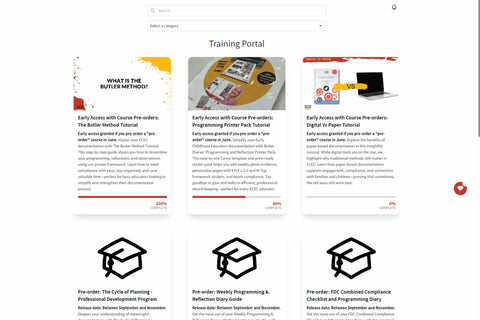Are you wondering which Trade Earn the most? Here is the Australian Trade that is one of the top earning Trades.
So, which trade earn the most?
The HVAC Technician!
Why is the HVAC Technician one of the trades to earn the most?
Australia's heating, ventilation, and air conditioning (HVAC) industry has witnessed significant growth in recent years, leading to a surge in demand for skilled HVAC technicians. Alongside this growth, it is not uncommon to find HVAC technicians earning substantial salaries. Here are some of the reasons HVAC technicians are one of the trades to earn the most in Australia:
-
Increasing Demand for Skilled Technicians: With the rapid expansion of urban areas and the booming construction industry, the demand for HVAC systems has soared across residential, commercial, and industrial sectors. Australia's extreme climate conditions also play a significant role in the increased installation and maintenance requirements for HVAC systems. This escalating demand for HVAC services has created a shortage of skilled technicians, leading to higher salaries.
-
Complex and Specialised Skill Set: The installation, repair, and maintenance of HVAC systems require a unique blend of technical knowledge and practical expertise. HVAC technicians in Australia undergo rigorous training and certification processes to acquire the necessary skills. They must possess a comprehensive understanding of electrical, mechanical, and refrigeration systems. The complexity and specialisation of their skill set contribute to their higher salaries.
-
Compliance with Industry Standards and Regulations: Australia has stringent regulations and standards in place to ensure the safety and efficiency of HVAC systems. These regulations demand compliance with guidelines related to electrical wiring, refrigerant handling, ventilation, and energy efficiency. HVAC technicians bear the responsibility of adhering to these standards, necessitating continuous training and upskilling. Their ability to navigate and comply with these regulations further justifies their higher compensation.
-
24/7 Service Requirements: HVAC systems are crucial for maintaining comfortable and healthy environments, particularly in extreme weather conditions. Clients often require round-the-clock service, especially in critical facilities like hospitals, data centres, and commercial establishments. HVAC technicians are frequently on call to respond to emergencies promptly. Their availability and ability to resolve urgent issues contribute to their higher pay scales.
-
Investment in Tools and Equipment: HVAC technicians need a range of specialised tools and equipment to carry out their tasks effectively. These tools can be expensive and require periodic upgrades. Furthermore, the cost of staying up to date with evolving technology and industry trends adds to the overall expenses incurred by HVAC technicians. Higher compensation helps them recover these costs and ensures they can provide quality service using state-of-the-art equipment.
-
Career Progression Opportunities: The HVAC industry offers ample opportunities for career growth and development. Experienced HVAC technicians can advance to supervisory or managerial roles or choose to specialise in specific areas such as energy efficiency, system design, or project management. These career progression paths come with higher responsibility and, consequently, higher pay.
The HVAC industry in Australia is thriving, fueled by the growing demand for climate control systems and the need for skilled technicians to install and maintain them. The high salaries received by HVAC technicians can be attributed to factors such as increasing demand, specialised skill sets, compliance with regulations, 24/7 service requirements, investment in tools and equipment, and career progression opportunities. As Australia's HVAC sector continues to evolve, the value placed on qualified and experienced technicians is likely to persist, making it a lucrative and rewarding profession.
What exactly does a HVAC Technician do?
When it comes to maintaining a comfortable indoor environment, HVAC technicians play a vital role. They are skilled professionals who specialise in heating, ventilation, and air conditioning systems. Here we delve into the responsibilities and tasks performed by HVAC technicians, shedding light on their essential contributions to our daily comfort:
-
Installation and Maintenance of HVAC Systems: One of the primary responsibilities of an HVAC technician is the installation and maintenance of heating, ventilation, and air conditioning systems. They work with various types of equipment, such as furnaces, boilers, heat pumps, air conditioners, and ventilation systems. From residential homes to commercial buildings, HVAC technicians ensure that these systems are correctly installed, calibrated, and functioning efficiently.
-
System Troubleshooting and Repair: When HVAC systems malfunction or fail, it is the HVAC technician's duty to diagnose and troubleshoot the problem. They use specialised tools and their technical expertise to identify issues with components such as compressors, motors, thermostats, ductwork, and refrigerant lines. Once the problem is identified, HVAC technicians undertake the necessary repairs to restore the system's functionality.
-
Testing and Balancing Airflow: To maintain optimal indoor air quality and ensure even distribution of conditioned air, HVAC technicians perform tests and balancing procedures. They measure and adjust the airflow, check ventilation rates, and verify that the system meets the required specifications. By balancing the airflow, HVAC technicians ensure that every part of the building receives adequate heating or cooling, leading to improved comfort and energy efficiency.
-
Refrigerant Handling and Leak Detection: For air conditioning and refrigeration systems, HVAC technicians handle refrigerants, ensuring their proper containment and safe disposal. They are responsible for charging and recovering refrigerants during installation, maintenance, and repairs. HVAC technicians also perform leak detection tests to identify any refrigerant leaks, as well as repair or replace faulty components to prevent further leakage.
-
Energy Efficiency Optimization: In an era of growing environmental concerns, HVAC technicians play a crucial role in promoting energy efficiency. They assess the performance of HVAC systems, identify energy wastage, and suggest measures to optimise energy usage. This includes recommending energy-efficient equipment, conducting system upgrades, and implementing control strategies to reduce energy consumption and lower utility costs.
-
Customer Service and Communication: Apart from technical expertise, HVAC technicians must possess excellent communication and customer service skills. They interact with clients to understand their concerns, explain system issues and repair options, and provide guidance on equipment operation and maintenance. Clear communication helps build trust and ensures customers have a comprehensive understanding of their HVAC systems.
HVAC technicians are the unsung heroes of our indoor comfort, working diligently to install, maintain, repair, and optimise heating, ventilation, and air conditioning systems. From ensuring efficient airflow and balancing temperatures to troubleshooting complex problems, they contribute significantly to our everyday well-being. By keeping our indoor environments comfortable, safe, and energy-efficient, HVAC technicians play an indispensable role in enhancing our quality of life.
How do you become the Trade that earns the most?
Becoming an HVAC technician in Australia offers a promising career path in a growing industry. With the increasing demand for heating, ventilation, and air conditioning services, skilled technicians are in high demand. Here is a step-by-step guide on how to embark on a rewarding journey to become an HVAC technician in Australia.
-
Research and Understand the Field: Start by researching the HVAC industry to gain a clear understanding of the role, responsibilities, and potential career prospects. Learn about the different types of HVAC systems, industry standards, and emerging technologies. Familiarise yourself with the demand for HVAC technicians in your area and the necessary qualifications.
-
Obtain Relevant Education and Training: Completing a vocational training program in HVAC technology or a related field is necessary to begin your career. Look for accredited institutions or vocational colleges that offer HVAC courses. These programs provide a solid foundation in electrical systems, refrigeration, ventilation, and system design.
-
Apprenticeship and On-the-Job Training: Consider pursuing an apprenticeship program, which combines classroom learning with practical on-the-job training. Apprenticeships provide valuable hands-on experience and mentorship under experienced HVAC technicians. It typically takes around 3-4 years to complete an apprenticeship, during which you will learn the intricacies of HVAC systems, installation, maintenance, and repair.
-
Obtain Required Certifications and Licenses: To work as an HVAC technician in Australia, certain certifications and licenses may be necessary. The most common certification is the Certificate III in Air-conditioning and Refrigeration (UEE32211), which is often a requirement by employers. Additionally, acquiring a Refrigerant Handling License (ARCtick) is essential for handling and working with refrigerants safely and legally.
-
Gain Practical Experience: During your apprenticeship or after completing your training, gaining practical experience is vital to hone your skills. Seek employment opportunities with HVAC companies, contractors, or service providers to gain hands-on experience in the field. Practical experience allows you to apply your knowledge, develop problem-solving skills, and understand real-world scenarios.
-
Continued Professional Development: The HVAC industry is continuously evolving with advancements in technology, regulations, and energy efficiency standards. Stay updated with industry trends, attend workshops, and participate in professional development programs. This ongoing learning will ensure you remain knowledgeable about the latest HVAC systems and techniques, giving you a competitive edge in the job market.
-
Seek Employment or Start Your Business: Once you have acquired the necessary qualifications and experience, you can start exploring job opportunities in the HVAC industry. Consider working with HVAC contractors, maintenance companies, or facilities management teams. Alternatively, you may choose to start your own HVAC business and provide installation, maintenance, and repair services to clients.
- Keep track of it all in your Construction Diary! The perfect tool for HVAC Technicians... learn more.
Becoming an HVAC technician in Australia requires a combination of education, training, practical experience, and certifications. Stay committed to continuous learning, keep up with industry developments, and provide quality service to establish yourself as a reliable and skilled HVAC technician. With the demand for HVAC services on the rise, your expertise will be highly valued, leading to a rewarding and prosperous career in Australia's thriving HVAC sector.



















